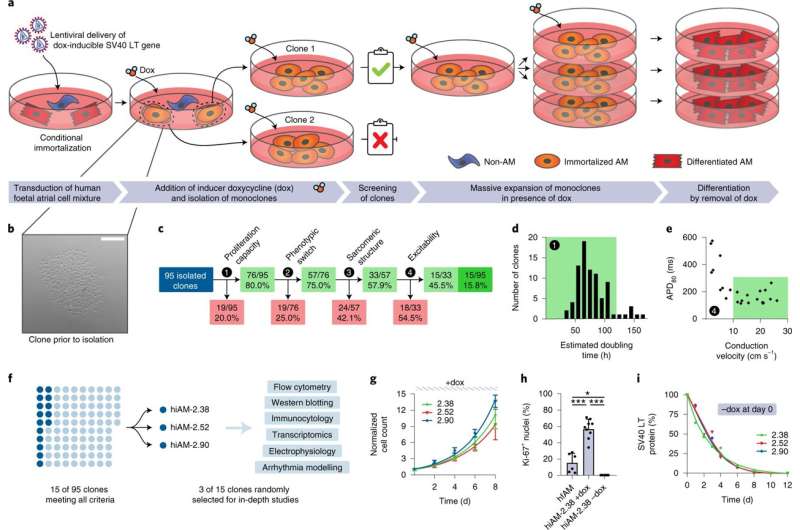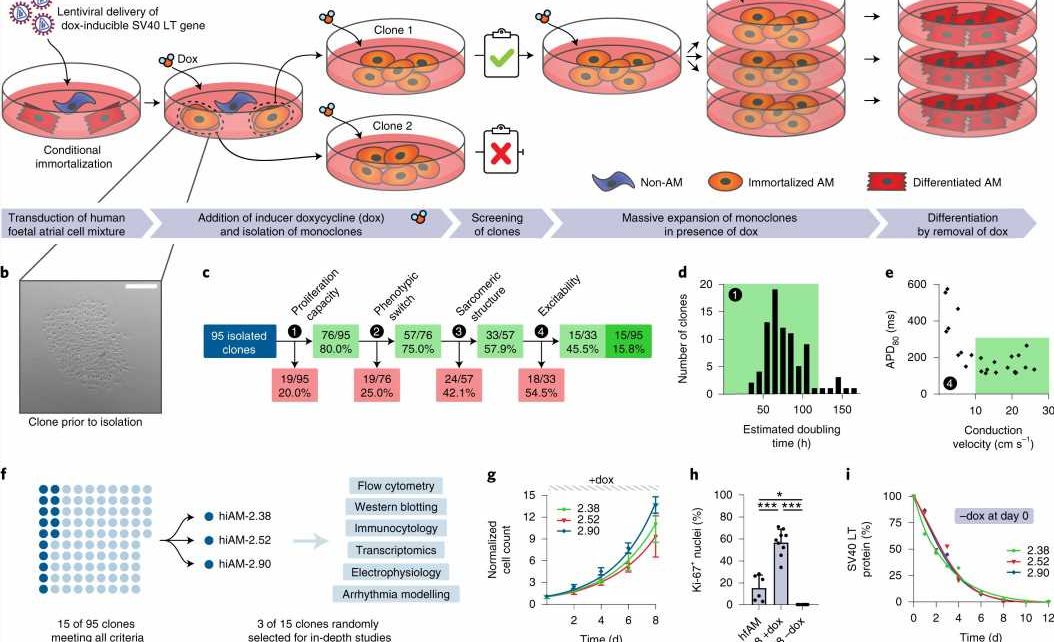
Researchers at the Leiden University Medical Centre (LUMC) have managed to culture human heart muscle cells on a massive scale. This is an exceptional achievement because it is very difficult to replicate heart muscle cells outside the body. Using a special technique, the researchers have now created a sheer inexhaustible source of human heart muscle cells offering many new opportunities for research into heart diseases. The results were published in Nature Biomedical Engineering.
Twan de Vries and his colleagues at the Department of Cardiology at the LUMC are investigating the cardiac disorder atrial fibrillation. One of the tools they use is laboratory animals. “This has many disadvantages,” says De Vries. “The use of laboratory animals is socially charged, animal care is expensive and the heart muscle cells of animals behave differently from human heart muscle cells in many respects.” The researchers would therefore prefer to use human heart muscle cells, but because these cells hardly multiply in the body, let alone in a laboratory, they simply cannot get enough heart muscle cells for their research.
Switch
By using an old trick of inserting a cancer gene into the DNA of heart muscle cells, the researchers hoped that the cells would strongly multiply. This worked very well, except that the cells lost their specific properties, such as the ability to contract, meaning they were no longer true heart muscle cells. “Then I thought: what if we could turn the cancer gene off again,” says De Vries. And that is what happened. The first trial with this oncogene that could be switched ‘on’ and ‘off’ was a great success.
De Vries: “By adding a substance to the cells, the oncogene becomes ‘active.’ The heart muscle cells then lose their properties and start dividing rapidly. By removing the substance, the oncogene is turned off and the cells become beating heart muscle cells again.” This has provided a virtually inexhaustible source of human heart muscle cells.
https://youtube.com/watch?v=AFww7uVy0f4%3Fcolor%3Dwhite
Fewer animals used for experiments
This discovery will allow better research into potential new drugs for cardiac diseases, as they can now actually be tested on real human cells. This can make an important contribution to reducing animal testing. For this reason, the research has been financed by the Dutch Society for the Replacement of Animal Testing.
More insight into heart diseases
Source: Read Full Article



